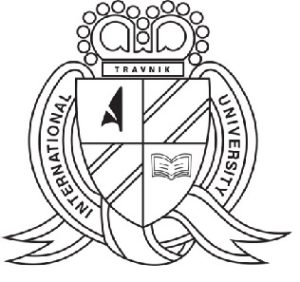CORPORATE SOCIAL RESPONSIBILITY AND SUSTAINABLE DEVELOPMENT
Corporate Social Responsibility - CSR refers to the impact of companies on society, economy and role in sustainable development. Social Responsibility brings to enterprises many advantages if they are eligible for the right way. It is not a mere waste of resources or unnecessary investment, because of some kind of political correctness. In countrie...
By Ibrahim Jusufranić, Fatima Dervić, Lejla Varupa
TRANSITION PROCESS AND THE ACCESSION OF BOSNIA AND HERZEGOVINA TO THE EUROPEAN UNION
The position of Bosnia and Herzegovina in the transition process in order to become a member of the European Union is specific. Even if it's not her war-torn economy, at the end of that situation found itself in thankless position of the lost market in construction works, tourist services, cooperative cooperation in the metal industry, long jobs in...
By Alisa Salkić, Rajko Kasagić
TECHNOLOGICAL DEVELOPMENT AS A CONDITION FOR CONVERGENCE OF MASS MEDIA (CASE STUDY: INTERNET - DAILY "AVAZ")
All the technological revolution have enabled faster dissemination of information. The Internet is clearly, today, the fastest way to spread information in parts of the world which is available this technology. The eternal struggle for the market of ideas, information and products has always been crucial to the mass media. The process of technologi...
By Seid Jusić
TOURISAM AS A POTENTIAL FACTOR IN ECONOMIC DEVOLOPMENT – BOSNIA AND HERZEGOVINA AND WESTRN BALKANS COUNTRIES
Countres of the region West Balkan become recognized and are attratction for foreigner but also for domestic tourists as a touristic destination where is necessary efficiency on all levels of the authority, for the better and quallity way to create and advanced positive view of the West Balkan. It is important to indicate that the mentiond region h...
By Emina Herenda
FUNDING PROBLEMS OF ENTREPRENEURSHIP DEVELOPMENT IN BOSNIA AND HERZEGOVINA
The permanent problem of entrepreneurship development is a difficult access to capital, the lack of private investment funds, inadequate regulatory framework for the banking sector, the aversion on approving loans and grants, and accounting standards do not make easier investment decisions. During the establishment entrepreneurs need start-up capit...
By Lejla Skopljak, Erma Heco
SWAP AS FINANCIAL MARKET RISK MANAGEMENT IN TRANSITION COUNTRIES
In conditions of globalisation and deregulation, banking business has become very risky. Turbulant environment especially apostrophized the meaning of managing the market risk – intrest rate risk, exchange rate risk and risk of changing asset price. Investors (banks) make decisions about modalities and risk managment techniques.The choice ranges fr...
By Husein Mehmedović, Goran Šijan, Nedina Moralić
FOREIGN INVESTMENTS AND THEIR SIGNIFICANCE FOR ECONOMIC DEVELOPMENT OF BOSNIA AND HERZEGOVINA
The main prerequisite for successful economic development of every economy in the modern business environment implies availability of sufficient financial resources with which would be financed the successful and sustained economic growth and development.Having in mind that the financial capital is very limited resource, and that many countries do ...
By Maida Bećirović, Azra Bećirović, Duško Masleša, Jasna Kuljanović
BUSINESS TRENDS OF THE 21ST CENTURY
The primary economic goal used to be profit as a prerequisite for achieving the goals of growth and development. Since the 70s of the 20th century significant business goal becomes meeting the requirements of consumers, because informed consumers are becoming first and last link in the chain of any entrepreneurial activity, and firstly entrepreneur...
By Snjeţana Slišković
LEGAL ASPECTS OF THE STABILISATION AND ASSOCIATION AGREEMENT BETWEEN THE EUROPEAN UNION AND BOSNIA AND HERZEGOVINA
The EU accession process took place in different stages of an individual country (the Association Agreement; Europe Agreements and Stabilisation and Association Process). With these processes, the European Union has offered to sign the Stabilization and Association Agreement which referred to Albania, Montenegro, Bosnia and Herzegovina, Croatia and...
By Remzija Kadrić, Amina Kadrić, Irma Hodţić, Selma Otuzbir
LEADERSHIP STYLE - A PREREQUISITE FOR THE ORGANIZATION'S EFFECTIVENESS
The phenomenon of leadership is old as civilization. Today in management exists a myriad of definitions of leadership as well as people who have attempted to define it. Leadership is not easy to define, because it is impossible to have specific rules for specific behaviours of individuals. Leadership in organizations is seen as the launch of the re...
By Enes Huseinagić, Lejla Skopljak, Mujo Fišo






